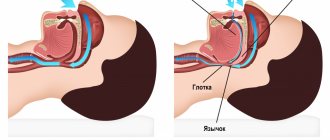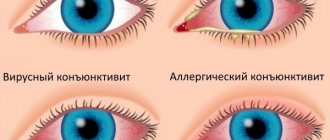Breathe slowly
How to get rid of panic attacks? Slow breathing helps to cope with a rapid heartbeat and shallow breathing, which are both symptoms of a panic attack and its provocateurs. By breathing slowly, you send a signal to your brain to calm down. This is one of the most effective physiological ways to stop a panic attack.
Focus on your breathing. Inhale for one-two-three-four, hold your breath for one second, exhale for one-two-three-four. Look at your stomach (even through clothes): how it inflates as you inhale and retracts as you exhale.
Methods for relieving panic attacks
What to do during a panic attack if there are no loved ones nearby?
Clinical psychologist Nelly Kovaleva recommends keeping in mind the idea that a panic attack will definitely end, and your task is to simply wait it out. If you have regular attacks, then you even know approximately how long this attack will last. The most important thing is not to worsen your condition with your own negative thoughts.
Nelly Anatolyevna Kovaleva psychologist
5,0 31
Open profile
The direction of thoughts should not be negative, but supportive. “Everything will pass soon, I just need to wait it out, this has happened to me. I've dealt with this before, and I can handle it now too. Now I’ll start with breathing practice, and I’ll get better and better.” This way you set yourself the right mood. After this thought, begin to perform the breathing technique that suits you best.
Most often, during panic attacks, the “square” technique is used: you should inhale slowly for four counts, hold your breath for four counts, exhale slowly for four counts and again hold your breath for four counts, and then repeat everything again.
Do you need to run to the pharmacy for sedatives to get rid of a panic attack?
If pharmaceutical drugs help you and do not damage your budget, then you can use them as an aid, Nelly Kovaleva is convinced. But the main remedy should be working on your lifestyle, working through regularly recurring stressful situations and working with your thinking.
Nelly Anatolyevna Kovaleva psychologist
5,0 31
Open profile
If you use an auxiliary tool without the main ones, then a miracle will not happen. It is necessary to work not with the symptom, but with the causes of the condition. You need to figure out what is preventing you from feeling a state of happiness and harmony. Unlike pills and herbal teas, this work will have long-term positive effects.
How to relieve a panic attack in a public place
In a public place, a person may experience a panic attack more severe than usual due to anxious thoughts that people will simply pass by if something happens to him. The condition can also be worsened by a feeling of shame, fear that strangers will see his weakness.
Nelly Anatolyevna Kovaleva psychologist
5,0 31
Open profile
Fix these thoughts and don't let them develop. Instead, change your thinking - think that in public places there will always be people ready to support you and call an ambulance if necessary. If shame and anxiety are so strong that you have started to avoid public places, then you should definitely consult a psychologist or psychotherapist.
During a panic attack in a public place, you can use a grounding technique that engages all your senses. It's called "5-4-3-2-1". Slow down your breathing, look around you and look for five objects, mentally naming them. Then name four sensations that you feel, for example: “I feel the soft fabric of the sweater, I feel the warmth in my palms.” Then listen to what is happening around you and name the three main sounds. Now try to smell two smells. And then one taste - you can try to simply imagine it, for example, remembering the taste of a green apple.
How to help a loved one suffering from panic attacks
Nelly Kovaleva recommends choosing a sensitive strategy of behavior without focusing on what is happening:
Nelly Anatolyevna Kovaleva psychologist
5,0 31
Open profile
First, communicate that you are willing to support the person in the way that makes them most comfortable. Perhaps someone will ask you to talk to him in order to focus on the voice, but for others, a hug and a feeling of security, the understanding that a loved one is very close, is more important.
Avoid devaluation and phrases like “this is something far-fetched, you just have nothing to do.” A person experiences even more stress from this, since you give rise to a feeling of guilt, shame, irritation and a feeling of loneliness. And stress only perpetuates this condition.
You should also avoid the other extreme - making a whole show out of what is happening and circling around, trying to “save” your loved one from a panic attack by all possible methods. The person may become even more frightened and think that something terrible is happening to them if you are so excited about it.
It is better to focus on the golden mean: respectful attitude towards the person and soft, calm support. During normal communication, clarify whether the person wants to share his experiences and what is happening in his life. Explain that you are ready to support him, and also ask if he would like to talk about his condition with a psychologist or psychotherapist.
Admit you are having a panic attack
How to understand that you are having a panic attack and get rid of it? During a panic attack, a person catastrophizes what is happening: it seems that it is a heart attack, stroke, death, madness, that you are fainting or about to vomit.
Tell yourself mentally several times: “This is not a disaster, this is a panic attack.” The intensity of your symptoms will decrease and you will begin to regain consciousness.
Beck Scale: Test for Anxiety
Train your mindfulness
Mindfulness is the ability to notice what is happening in and around you.
Panic attacks often lead to a feeling of unreality, out-of-body, detachment from one's own body and from the world. Mindfulness helps cope with a panic attack and the first signs of its approach.
How to deal with panic attacks? Focus on your body, look at it or imagine with your eyes closed: how your feet touch the floor, how your clothes touch your skin, mentally move to the tips of your fingers.
To distract yourself, you can focus your gaze on familiar objects around you - a glass with pens and pencils, a plant on the window, a pattern on the wall or on the floor, and so on.
Panic attacks
Thyrotoxicosis
25597 03 February
IMPORTANT!
The information in this section cannot be used for self-diagnosis and self-treatment.
In case of pain or other exacerbation of the disease, diagnostic tests should be prescribed only by the attending physician. To make a diagnosis and properly prescribe treatment, you should contact your doctor. Panic attacks are an anxiety disorder and are characterized by recurrent attacks of severe anxiety that are not limited to a specific situation or circumstance.
Symptoms that most often occur during an attack: a feeling of a “lump” in the throat, lack of air, rapid heartbeat, sweating, trembling, nausea, loss of voice, deterioration of hearing and vision.
Varieties
- Autonomic panic attacks are accompanied by rapid heartbeat, increased sweating, dizziness and chill-like trembling.
- Hyperventilation panic attacks – this type of attack is characterized by muscle pain, shortness of breath, and increased breathing.
- Phobic panic attacks are associated with a specific situation or place.
- Conversion panic attacks are manifested by temporary loss of voice, unpleasant sensations in the left half of the chest, and can lead to pre-fainting. This type of panic disorder is not accompanied by feelings of anxiety or fear of death.
- Senestopathic panic attacks - cause a feeling of numbness and “crawling” throughout the body.
- Affective panic attacks are characterized by changes in mood with a predominance of depressive disorders: melancholy, fatigue, and feelings of exhaustion.
- Depersonalization-derealization panic attacks are accompanied by a feeling of unreality about yourself or the world around you.
Causes of panic attacks The
causes of panic attacks can be stress, increased anxiety, depression, and general exhaustion of the body. Sometimes they can be caused by hormonal disorders, pathologies of the central nervous system, and some somatic diseases. For example, cardiovascular diseases (arrhythmia, coronary heart disease, arterial hypertension), diseases of the respiratory system (chronic bronchitis in the acute stage, bronchial asthma), disorders of the endocrine system (diseases of the thyroid and parathyroid glands, diabetes mellitus, pheochromocytoma). It is also worth considering the relationship between the occurrence of attacks and the side effects of a number of medications, drugs, or alcohol abuse. The hereditary factor also plays a certain role.
Which doctors should I contact?
In order to determine the cause of a panic attack, you need to consult a psychotherapist. If you suspect a somatic nature of panic attacks, the doctor can refer you to specialists such as: , general practitioner, , , , to identify the cause that resulted in panic disorder.
Diagnostics
Laboratory and instrumental examination is required to identify the physiological basis of panic attacks.
Assessment of cardiovascular function includes:
- biochemical blood test: lipid profile (total cholesterol, HDL, LDL, VLDL, triglycerides, atherogenicity coefficient);
Stop the attack with medication
Drugs from the group of tranquilizers (anxiolytics or anti-anxiety drugs) help stop a panic attack if you take the pill at a time when it is still in its infancy.
Tranquilizers cannot be taken by everyone; they are sold by prescription, so they must be prescribed by a psychiatrist or psychotherapist.
Panic attacks. Why don't pills help?
help yourself
At the moment when you are overtaken by an attack, it is very difficult to control yourself. But you can try to pull yourself together and help yourself get rid of it quickly:
- Go out into the fresh air or open the windows, unbutton tight clothes. Pour cool water over your face.
- It is important to switch to breathing. Try to breathe deeply, slowly and fully. To increase the level of carbon dioxide in the blood, breathe into a bag or cupped palms (imitate the position of breathing into them, trying to warm them up).
- Try to think about something positive or talk to someone. Try counting to 100 or count passing cars or trees if fear catches you in transport or on the street. All this helps to shift attention away from anxious feelings. If the cause of alarm is a certain place, hurry to leave it.
- To stabilize your body, place your hands on a stable surface or press your feet into the floor. This position will give you a feeling of confidence and control.
- Keep telling yourself that this will all end now. The anxiety that arises will not harm you, it is simply a figment of your imagination.
If you witness an attack on someone, you can help the person cope with the problem. The main thing: do not panic yourself! You must be calm. And with your calmness set an example for him.
Talk to him, hug him on the shoulder or squeeze his hand. Show me how to breathe correctly. If conditions permit, give the person water or warm tea.
The main thing is not to get confused in this situation. Remember, your behavior can significantly alleviate the panicker’s condition.











